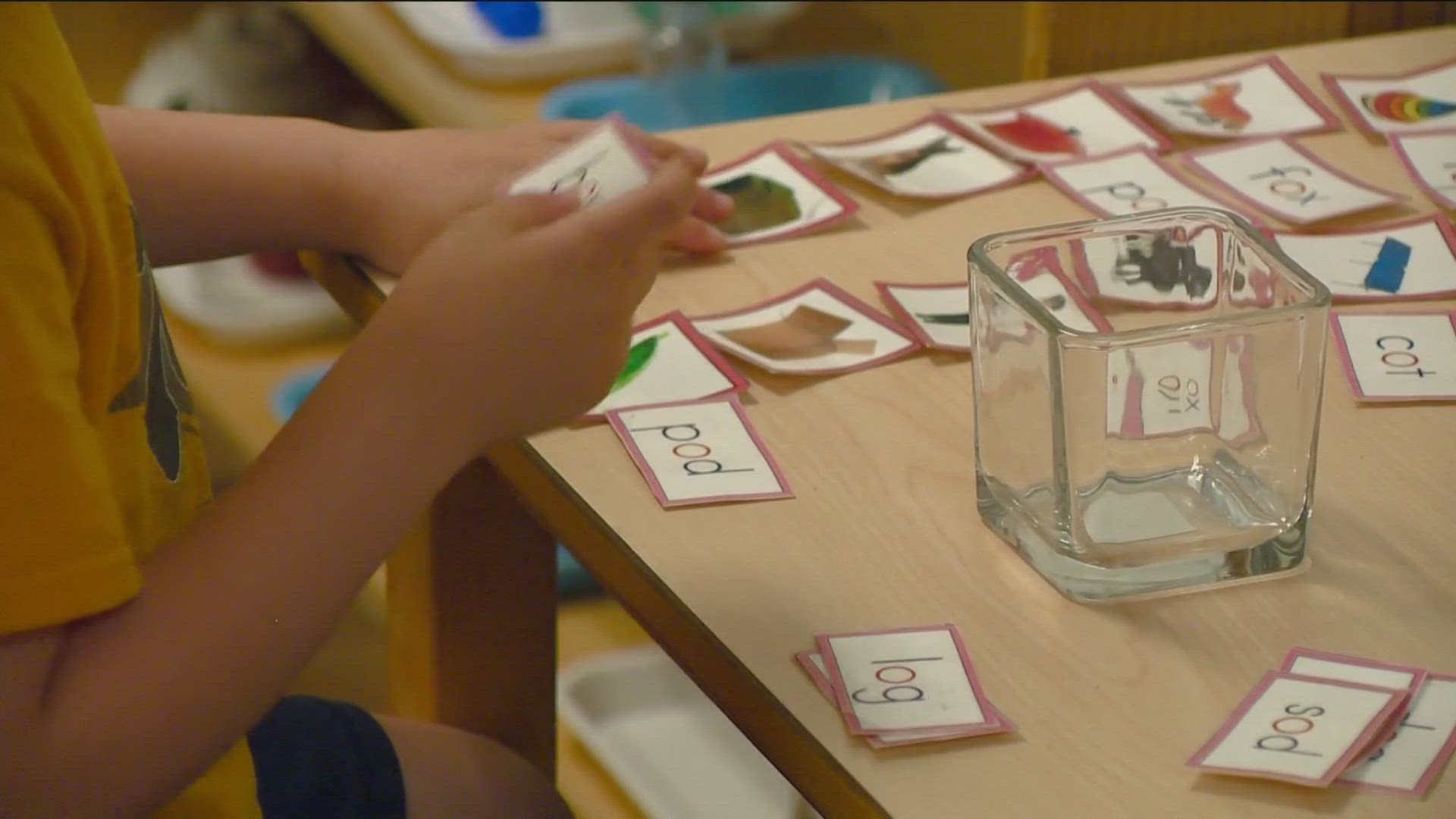IDAHO, USA — Since federal COVID-19 relief money for Idaho's childcare industry runs out in June, some local providers are adjusting their budgets to make ends meet.
"This is a crisis moment," Lakewood Montessori owner Mary Clements said.
Over the past three years, Idaho has received more than $300 million in relief money to keep the childcare industry afloat. Business owners like Clements got thousands of dollars monthly to help keep the lights on and pay for staff.
About 3,600 individual employees also got $300. Emily Allen, Voices for Children policy associate, said the wage boost was necessary.
"Idaho's median wage for childcare workers is $10.50 per hour," she said. "We have to pay teachers more in order to retain them as educators in the early childhood workforce."
To keep improving salaries and deal with inflation, Clements said they need to continue increasing tuition after the American Rescue Plan Act money runs out.
She said Lakewood Montessori has already announced a 10% hike, which is not enough. Unfortunately, raising tuition means possibly excluding certain families.
"I worry that families can't afford childcare," Clements said, "or at least they can't afford high-quality childcare with highly educated and experienced teachers. And that should be something that everybody should worry about."
Already, Allen said there are not enough childcare providers around Idaho. The pandemic only made the issue worse, with hundreds of businesses closing.
With the upcoming "fiscal cliff," she predicts more closures. There are possible solutions to the Gem State's fragile childcare industry, which Allen believes is necessary for a healthy economy.
The state does not put any money into the industry. She said without government assistance, it will collapse.
"It's not a handout to ensure that folks can go to work," she said. "In this economic environment of rapid inflation and parents living paycheck to paycheck, what are working families supposed to do if they can't afford a childcare center for their kid?"
She said those families must make hard decisions, like pulling one parent out of the workforce. Allen recommended businesses set up subsidized childcare, which helps address the availability and affordability issues.
Just last week, Micron broke ground on its new center. Allen encourages more state programs like the Workforce Development Council's Childcare Expansion Grant Program.
"It's a great mechanism to shore up the public-private partnership necessary to expand availability and offset some of the closures that will come with the fiscal cliff," she said.
Clements hopes everyone involved comes together and supports the state investing more money into the industry. She is currently looking over and changing business plans to make ends meet.
Raising awareness is the first step, Clements said.
"Our governor and our state legislators need to be made aware that childcare is an essential industry that needs and deserves support," she said. "Children can't advocate for themselves. And so, we have to advocate for them."
Watch more Local News:
See the latest news from around the Treasure Valley and the Gem State in our YouTube playlist:

